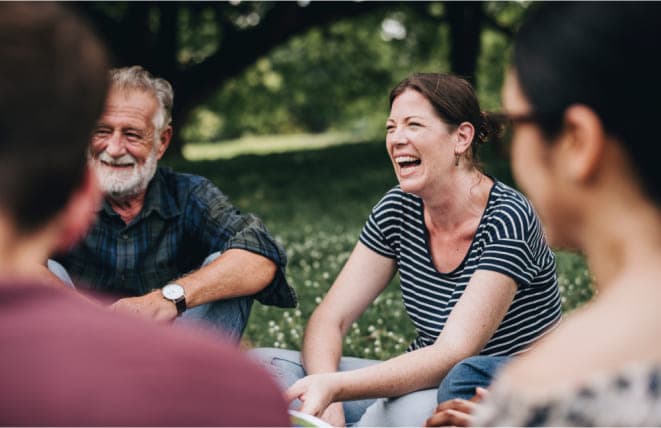In an age where distractions abound, maintaining focus has become an ever-growing challenge. Cognitive processes like perception, attention, learning, and memory—key drivers behind social interactions—may also contribute to sustained focus. The cognitive demands of living in social groups and forming relationships have long been hypothesized as catalysts for the evolution of advanced mental capabilities. These skills may not only help individuals navigate complex social networks, but could also influence their ability to concentrate on other aspects of life (Wascher et al., 2018).
You may also want to read: Break the cycle of rumination.
Collaborative activities: strengthening focus through social engagement
Social interactions could play a pivotal role in shaping how individuals acquire and process information. Collaborative activities, such as group discussions or problem-solving sessions, allow participants to exchange ideas and perspectives, fostering a greater understanding of the task at hand. Research indicates that individuals in central positions within social networks tend to learn more quickly and acquire novel information efficiently. These opportunities for learning and engagement could help sharpen focus and cognitive clarity (Wascher et al., 2018).
The link between social bonds and cognitive performance
Scientists have identified a connection between sociality and the ability to infer abstract concepts. For instance, research suggests that increased motor imitation exhibited by learners indicates a stronger desire for assistance. Participants who sought help were more attuned to the avatar in the study, receiving additional cues and support during guessing tasks (De Felice et al., 2022).
Studies on social dynamics reveal that learning in interactive contexts involves both cognitive and social mechanisms. Engaging in meaningful interactions allows individuals to share knowledge and resources, potentially reducing the cognitive load associated with learning in isolation. These shared dynamics could create a collaborative environment that fosters focus and cognitive engagement through mutual support (De Felice et al., 2022).
Social dynamics and cognitive development
The intricate relationship between social interactions and cognitive performance underscores how external factors influence individual learning abilities and outcomes. Besides cognitive ability, characteristics such as age, sex, personality, and social status could play a role in determining how individuals acquire and process information. These factors affect motivation, persistence, and the opportunities available for learning, ultimately shaping the effectiveness of knowledge acquisition and cognitive growth (Wascher et al., 2018).
Some individuals ultimately acquire new information more quickly or accurately than others, leading to variation in knowledge among conspecifics. This variation in knowledge, whether it stems from differences in learning ability or from other factors influencing information acquisition, could have significant consequences for social relationships (Wascher et al., 2018).
Harnessing social interactions to promote cognitive performance
In a world increasingly defined by distractions, the interplay between social engagement and cognitive performance offers valuable insights into maintaining focus and learning. Social networks and collaborative environments not only facilitate the exchange of knowledge but could also strengthen cognitive processes critical for sustained attention. By fostering meaningful interactions and leveraging the benefits of social connectivity, individuals could boost their ability to concentrate, adapt, and succeed in both personal and collective pursuits (Wascher et al., 2018).
References:
De Felice, S., De C Hamilton, A. F., Ponari, M., & Vigliocco, G. (2022, December 26). Learning from others is good, with others is better: the role of social interaction in human acquisition of new knowledge. Philosophical Transactions of the Royal Society B Biological Sciences, 378(1870). https://doi.org/10.1098/rstb.2021.0357
Wascher, C. a. F., Kulahci, I. G., Langley, E. J. G., & Shaw, R. C. (2018, August 13). How does cognition shape social relationships?. Philosophical Transactions of the Royal Society B Biological Sciences, 373(1756), 20170293. https://doi.org/10.1098/rstb.2017.0293


